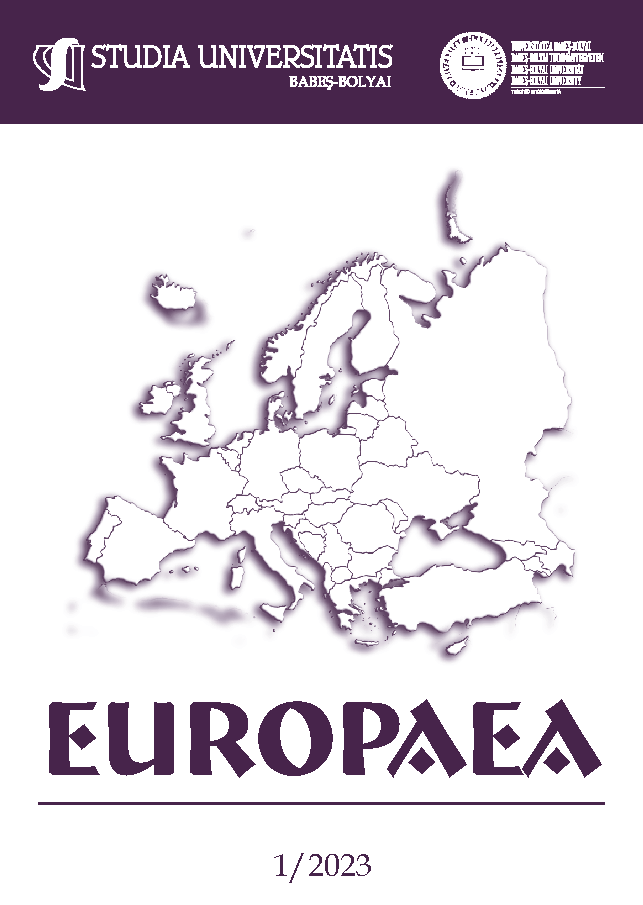THE IMPORTANCE OF HIGHER EDUCATION ON ECONOMIC GROWTH
DOI:
https://doi.org/10.24193/subbeuropaea.2023.1.11Keywords:
Education, Economic Growth, Artificial Intelligence, fuzzy logic, soft regressionAbstract
It is very important for countries to stimulate their economic prosperity and reduce poverty. While it is commonly accepted that education of all forms enhances economic performance of a country, yet the question of which level of education, secondary or tertiary, is more important to fuel the economy is not conclusively answered. The finding in Avraham Cohen’s PhD thesis is that education, as measured by published research, is strongly associated with Artificial Intelligence index of countries. Also, he found that AI is strongly associated with GDP. His findings encourage the idea that higher education, which is needed for Artificial Intelligence (AI), will be a dominant factor for economic growth in general; hereby, policy makers should invest in higher education to ensure economic affluence. Enrollment rates for higher education in Sub-Saharan Africa are by far the lowest in the world and the academic research output in the region is among the world’s lowest. Because of a belief that primary and secondary schooling are more important than tertiary education for poverty reduction, the international development community has encouraged African governments’ relative neglect of higher education. Using methodology of fuzzy logic-based soft regression, this study challenges these beliefs and demonstrates that economic growth is almost exclusively determined by higher education. Also, the importance of higher education relative to secondary education is more so in recent years relative to a decade or two ago. Motivated by this finding, I propose to find the right branch of higher education for every country based on its economic competitive advantage that will impact its economic growth best.
References
Barro Robert., Lee J. Wha (2016), BarroLeeDataset https://barrolee.github.io/BarroLeeDataSet/DataLeeLee.html
Becker Gary (1964), “Human Capital: A Theoretical and Empirical Analysis, with Special Reference to Education” in National Bureau of Economic Research.
Birdsall, Nancy. (1996), “Public spending on higher education in developing countries: too much or too little?”, in Economics of Education Review, no. 15, vol. 4, 1996, pp. 407-419.
Bloom, David. E., Canning, David., Chan, Kevin. J., & Luca, David. L. (2014), “Higher education and economic growth in Africa” in International Journal of African Higher Education, no.1, vol. 1, 2014, pp. 22-57.
Boland, Theo. (1993), “The importance of being literate: Reading development in primary school and its consequences for the school career in secondary education”, in European Journal of Psychology of Education, no.8, 1993, pp. 289-305.
Bradley Steve. and Colin Green (eds.) (2020), “the Economics of Education: A Comprehensive Overview”, in 2nd edition, Academic Press, London
Cohen Avraham. (2023), “The Impact of Artificial Intelligence in Cyberspace on Geopolitics International relations”, Ph.D Dissertation in Diplomacy at the Cyber ‘Hidden War’ Era
Friedman, Milton. and Friedman, Rose (1980), “Free to choose: a personal statement”, in New York: Harcourt Brace Jovanovich.
Guo Quan., & Jia Jia. (2009), “Public education policy, economic growth and human capital premium”, in Economic Research Journal, no. 44, vol. 10, 2009, pp. 22-35.
Gyimah-Brempong Kwabena., Paddison Oliver., & Mitiku Workie. (2006)., “Higher education and economic growth in Africa”, in The Journal of Development Studies, no. 42, vol. 3, 2006, pp. 509-529.
Hanushek Eric. (2016), “Will higher education improve economic growth?”, in Oxford Review of Economic Policy, no. 32, vol. 4, 2016, pp. 538-552.
International Dollar Geary-Khamis Defined, Examples Explained. Business Case Website, https://www.business-case-analysis.com/international-dollar.html
Jordi Mogas Recalde, Ramon Palau & Gisela Cebrián Bernat. (2022), “Smart schools on the way: How school principals from Catalonia approach the future of education within the fourth industrial revolution”, in Learning Environments Research, no. 25, vol. 3, 2022, pp. 875-893.
Marquez-Ramos Laura, & Mourelle E Estefanía. (2019), “Education and economic growth: an empirical analysis of nonlinearities”, in Applied Economic Analysis.
Mincer Jacob. (1974), “Schooling, Experience, and Earnings”, in NBER
Rahman Tashmina, Nakata, Shiro., Nagashima Yoko., Rahman Mokhlesur., Sharma, Uttam & Rahman Muhammad Asahabur. (2019), “Bangladesh tertiary education sector review”
Richard K. Vedder. (2004), “Going broke by degree: Why college costs too much” in American Enterprise Institute.
Schultz Theodore. (1961), “Investment in Human Capital”, in American Economic Review, Vol. 51, 1961, pp. 1-17.
Shnaider Eli. & Yosef, Arthur., (2018) “Relative importance of explanatory variables: Traditional method versus soft regression” in International Journal of Intelligent Systems, no. 33, vol. 6, 2018, pp. 1180-1196.
Shnaider Eli. & Yosef Arthur., (2018), “UTILIZING INTERVALS OF VALUES IN MODELING DUE TO DIVERSITY OF MEASUREMENTS”, in Fuzzy Economic Review, no. 23, vol. 2, 2018.
Wolff Edward. (2001), “The role of education in the postwar productivity convergence among OECD countries” in Industrial and Corporate Change, no. 10, vol. 3 ,2001, pp. 735-759.
Zhang Dongyang., Abdul Khaliq Rasheed., & Youngho Chang. (2021), “Public spending and green economic growth in BRI region: mediating role of green finance”, in Energy Policy.
Downloads
Published
How to Cite
Issue
Section
License
Copyright (c) 2023 Studia Universitatis Babeș-Bolyai Europaea

This work is licensed under a Creative Commons Attribution-NonCommercial-NoDerivatives 4.0 International License.






